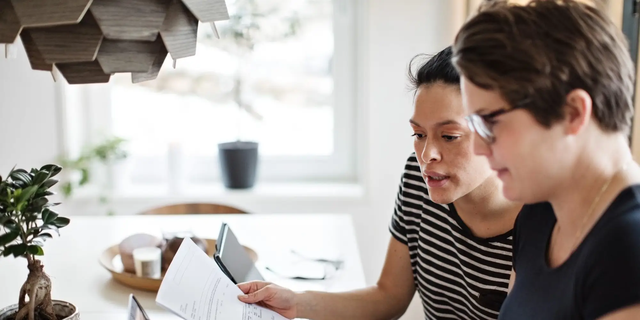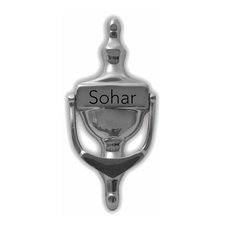
Jennifer Streaks
April 29, 2024
As Melissa Jean-Baptiste writes in her book, "So … This Is Why I'm Broke," "saving money is a skill that requires practice and steady financial habits."
Jean-Baptiste, who paid off over $100,000 of student loan debt, has seven bank accounts: one for each savings bucket in her budget. It helps her keep her money organized and works well for her financial goals.
Do we all need seven bank accounts? Jean-Baptiste advises no. "What you need is exactly what supports the routines and habits you created to support your financial goals," she writes.

Make saving a habit by making it a part of your routine. Melissa Jean-Baptiste not pictured. Maskot/Getty Images
The beauty of personal finance is that it's personal. Jean-Baptiste opened seven bank accounts to help her watch her money. "I monitored and tracked how much money was going in and out of each category in my budget. Having just one account with all my savings in one place didn't work for me," she writes.
The important thing about saving is getting started and creating a habit. You have to cultivate the habit of saving. I always say to set it and forget it. Make saving a financial habit and a part of your routine.
Here are a few steps you can take to save more money:
1. Set up the bank accounts that you need
Jean-Baptiste writes, "If you're just getting started saving, or you're reconditioning your routines and financial habits, three accounts is a good place to start. A checking account for your day to day expenses and bills, emergency savings to house three to six months of expenses, and discretionary savings for anything you may be planning on purchasing."
I totally agree. I actually have five accounts: checking, high-yield savings account, a travel account, a business account, and an account for a down payment on a home. I have automatic deductions that go into savings and the home account, and I deposit money into the business and travel accounts as needed.
2. Pay yourself first every paycheck
Set up an automated transfer from your checking account to your savings account every time you get paid. You can even set it up where the amount you want to save is automatically deducted from your paycheck and goes directly into your savings account. This way, you set it and forget it, and there isn't a choice to make about whether or not you are going to save — it's already done.
3. Increase your savings over time
Once you have automated your saving and built it into your routine, you need to figure out how to increase your saving incrementally over time. You may need to replenish funds you used during an emergency or save more money to meet savings goals such as a down payment on a home.
Saving is so important because it allows you to enjoy greater security in life. If you have money set aside for emergencies, you have a cushion to fall back on should the unexpected happen. And if you have savings set aside for discretionary expenses, economic challenges like inflation may have less of a bite.
Subscribe to Business Insider's Financial Insights Newsletter
This Business Insider article was legally licensed by AdvisorStream


